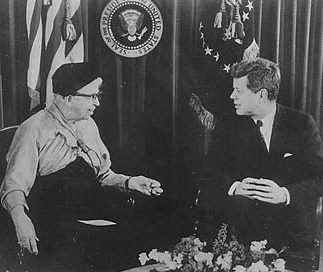
by Stefan Schindler
Anti-factoid American history, continued …
5 – Vietnam was America’s ally in World War Two. After Japan’s defeat, Vietnam persistently sought American friendship. Vietnam was, briefly, an independent and united country with a newly written constitution and plans for democratic elections. If post-war America was paranoid about Chinese communist expansion into Southeast Asia, no better ally could be had than the Vietnamese, who had fought the Chinese for two thousand years. Yet, shortly after Japan’s surrender, President Truman helped the French do to the Vietnamese what the Nazis had just done to them.
6 – Note the moral contradiction in saying that German, Italian, and Japanese imperialism is not OK, but that British, French, and American imperialism is just fine. Most American citizens remain oblivious to the ethical absurdity of presidents saying for decades that we have to support dictatorships to make the world safe for democracy.
7 – The Eisenhower Administration, in direct violation of the Constitution, promoted the insertion of “In God We Trust” on America’s coins. The Eisenhower Administration walked out of the Geneva Peace Conference of 1954 after the Vietnamese won their eight-year war against the French; then the U.S. undermined the 1956 Vietnamese democratic election guaranteed by the Conference, installing in a mostly Buddhist “South Vietnam,” an American financed Catholic puppet dictator who immediately began killing and imprisoning those Vietnamese who fought the eight-year war of independence – 1946 to 1954 – against the French.
8 – The Eisenhower Administration overthrew social democracy in Iran in 1953, supporting a subsequent, 26-year dictatorship that profoundly contributed to Middle Eastern hatred of America. Eisenhower’s CIA did same in Guatemala in 1954.
9 – Nelson Mandela spent 26 years in a South African prison thanks to the Central Intelligence Agency’s informing the South African apartheid government of Mandela’s whereabouts, leading to his arrest and imprisonment.
10 – After the assassination of President Kennedy, Lyndon Johnson had a full two months to respond favorably to a South Vietnamese call for peace and the withdrawal of America’s military. Instead of making peace possible, Lyndon Johnson did what President Kennedy never did: he launched a full scale war, during which, in violation of international law, and constituting an indisputable war crime, America sprayed 20 million tons of Agent Orange across the Vietnamese landscape, and dropped more bombs on Vietnam than all the bombs dropped everywhere in World War Two.
Co-founder of The National Registry for Conscientious Objection, a Woodrow Wilson Fellow, a recipient of The Boston Baha’i Peace Award, and a Trustee of The Life Experience School and Peace Abbey Foundation, Dr. Schindler received his Ph.D. in Philosophy from Boston College, worked one summer in a nature preserve, lived in a Zen temple for a year, did the pilot’s voice in a claymation video of St. Exupery’s The Little Prince, acted in “Who’s Afraid of Virginia Woolf,” and performed as a musical poet in Philadelphia, Boston, and New York City. He also wrote The Peace Abbey Courage of Conscience Awards for Howard Zinn and John Lennon. He is now semi-retired and living in Salem, Massachusetts.

